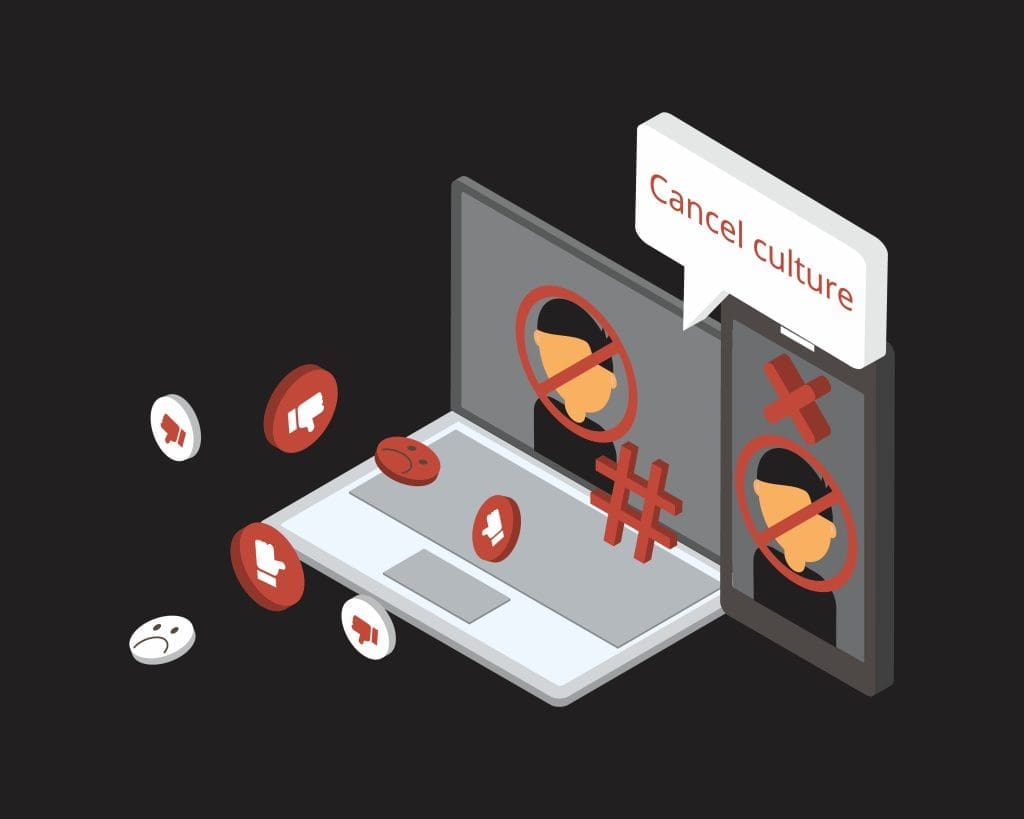Navigating Cancel Culture in Online Spaces

Cancel culture has become a prevalent topic recently, particularly in online spaces. It refers to publicly calling out or boycotting individuals or companies for their controversial actions or statements. While it aims to hold people accountable for their actions, it has also sparked debates on its effectiveness and potential consequences. This article will delve deeper into cancel culture and how it manifests in online spaces.
Defining Cancel Culture
Cancel culture is a form of social ostracism where individuals or groups are publicly shamed and boycotted for their controversial actions or statements. It is often initiated by a group of people on social media and can lead to severe consequences for the person or company being “canceled.” Cancel culture is usually seen as a way to hold individuals accountable, but it has also been criticized for being a form of cyberbullying.
History of Cancel Culture
The term “cancel culture” originated in the 1990s, but it gained widespread attention in recent years with the rise of social media. It has been used to describe various instances, such as the #MeToo movement and boycotts of celebrities for their problematic behavior. Cancel culture has also been associated with “call-out culture,” where individuals are publicly criticized for their actions on social media.
How Does Cancel Culture Manifest in Online Spaces?
Cancel culture often manifests online, with social media being the primary platform for calling out and boycotting individuals or companies. It can be seen through hashtags, trending topics, and public statements from individuals or groups. In some cases, it has led to the loss of jobs, sponsorships, and reputations for those who are “canceled.”
The Role of Social Media in Cancel Culture:
Social media has played a significant role in the spread of cancel culture. It has given individuals a voice to call out problematic behavior and hold people accountable. However, it has also been criticized for promoting a “mob mentality” and harming innocent individuals who may have been falsely accused.
What Are the Effects of Cancel Culture?
Cancel culture can have significant effects on both individuals and society. On an individual level, it can lead to severe consequences, such as job loss, mental health issues, and damage to personal reputation. Societally, it can create a toxic online environment and hinder constructive dialogue on important issues.
How Can Individuals Navigate Cancel Culture?
In navigating the challenging terrain of cancel culture, individuals must first recognize the profound consequences that it can have on their personal and professional lives. This recognition serves as the starting point for proactive steps. Education becomes crucial, as individuals need to invest time in understanding the social issues and context surrounding any controversy.
This more profound knowledge empowers them to engage in meaningful, informed conversations rather than reacting impulsively. Engaging in productive and respectful dialogue is a pivotal strategy for mitigating the adverse effects of cancel culture.
By approaching conversations with an open mind, listening to opposing viewpoints, and being willing to learn and grow, individuals can demonstrate a commitment to personal growth and societal progress. Furthermore, fostering empathy and practicing practical communication skills can help bridge gaps in understanding and reduce the likelihood of becoming a target of cancel culture.
Ultimately, individuals can navigate cancel culture by taking a thoughtful, informed, and empathetic approach to its challenges.
How Can Companies Handle Cancel Culture?
For companies, effectively handling cancel culture requires a comprehensive crisis management plan. Proactive planning is vital, as it enables swift and strategic responses when controversies arise. Companies should establish clear communication channels and response protocols to address potential crises promptly and decisively.
Beyond crisis management, it is equally crucial for companies to address systemic issues related to inclusivity and diversity within their organizations. They must prioritize creating a safe and inclusive environment for employees and customers. This entails implementing and upholding robust diversity and inclusion policies, fostering a workplace culture that values diversity, and actively seeking diverse perspectives and voices.
By genuinely committing to these principles, companies can withstand cancel culture and position themselves as advocates for positive change. Companies must combine crisis preparedness with a genuine dedication to inclusivity and diversity to effectively navigate cancel culture’s challenges and emerge as socially responsible entities.
Cases of Cancel Culture in Social Media
Instances of cancel culture in social media have been highly prevalent, with many public figures facing severe backlash for their actions and statements. For example, a celebrity’s insensitive tweet sparked a major controversy, leading to widespread condemnation and significant consequences for their career.
Similarly, a social media influencer’s controversial video caused outrage, resulting in a substantial decrease in followers and the termination of brand partnerships.
